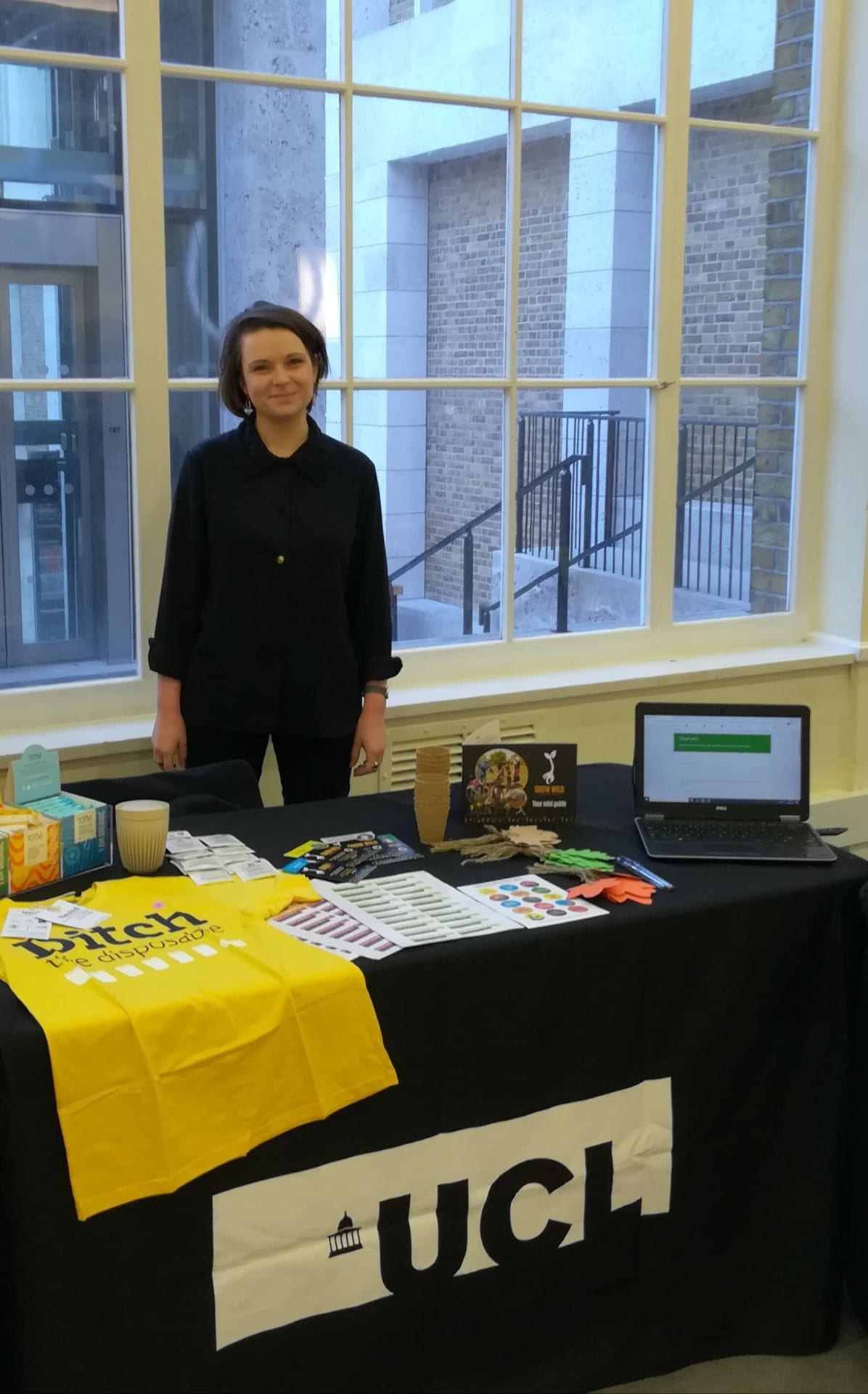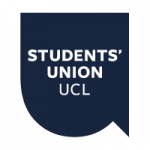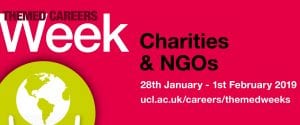Sustainability Fortnight: Career Stories with Sustainable UCL
By skye.aitken, on 24 February 2020
As part of UCL Careers Sustainability Fortnight our colleagues at Sustainable UCL are sharing their career stories, motivations and top tips. Inspired? Check out our full events programme and learn more about careers in sustainability
Written by Katie Robinson, Sustainability Engagement Intern at Sustainable UCL.
What does your role consist of?
Having worked with the Sustainable UCL team for just five months, I have learnt an incredible amount in this short period of time. Not just about sustainability within UCL but about the larger Climate Crisis and the incredible actions students, staff, academics, scientists (the list goes on), are driving in a commitment to protecting our planet.
In broad terms, my role consists of developing sustainability engagement programmes at UCL, raising awareness around sustainability and encouraging, promoting, and facilitating actions among UCL staff and students.
A large part of my role is coordinating with our Green Champions across the many departments, to embed sustainability as common practice. We have developed the Green Impact toolkit to reflect UCL’s Sustainability Strategy 2019-2024. Since the launch of this Strategy, we have seen an encouraging increase in engagement and active participation. I work to bring these various activities and conversations into a cohesive whole, as much as possible, to showcase the incredible work individuals and teams are doing.
What got you interested in the environment?
It was during my Masters in Cultural Heritage Studies at UCL that I realised I cared about protecting the planet above all else. Heritage is a heterogeneous term so I turned my attention to human-nature relationships and how this has transformed over time, to where we are today.
This drive stems from the time I became vegetarian, instigated by a concern for animal welfare. As I moved towards veganism, I inevitably researched my new diet and it naturally fed into all of my other habits: shopping, consumption, hobbies, holidays, etc. An initial compassion for other species, evolved into a care for the environment and social justice, which are intrinsically tied in the climate crisis. My role with Sustainable UCL lets me share this passion and enthusiasm for positive change with others.
What tips would you give to someone interested in this field?
Do not worry if you have realised, after choosing/studying your degree that it no longer matches with your concern for sustainability. Every industry and sector must respond to the climate crisis now so whatever your field of study, they will need your academic expertise and commitment to sustainability to help them change. I have an undergraduate degree in History of Art and a postgraduate degree in Cultural Heritage Studies. I previously worked in hospitality for eight years. These previous pursuits do not seem particularly well suited to a career in this field but it is all about using the experience you do have to find the role that suits your strengths.
I would highly recommend reading plenty and often. News changes and research is outdated and updated regularly in the climate crisis, so read broadly. This can be commute reading such as articles on the tube. If you find an area you are particularly interested in, research with a little more focus on this and you will be well versed to talk about it in your next role.
Thank you to Katie and Sustainable UCL for sharing their career stories. Keep an eye out for our next edition coming soon. For remaining Sustainability Fortnight events, see here.
 Close
Close















